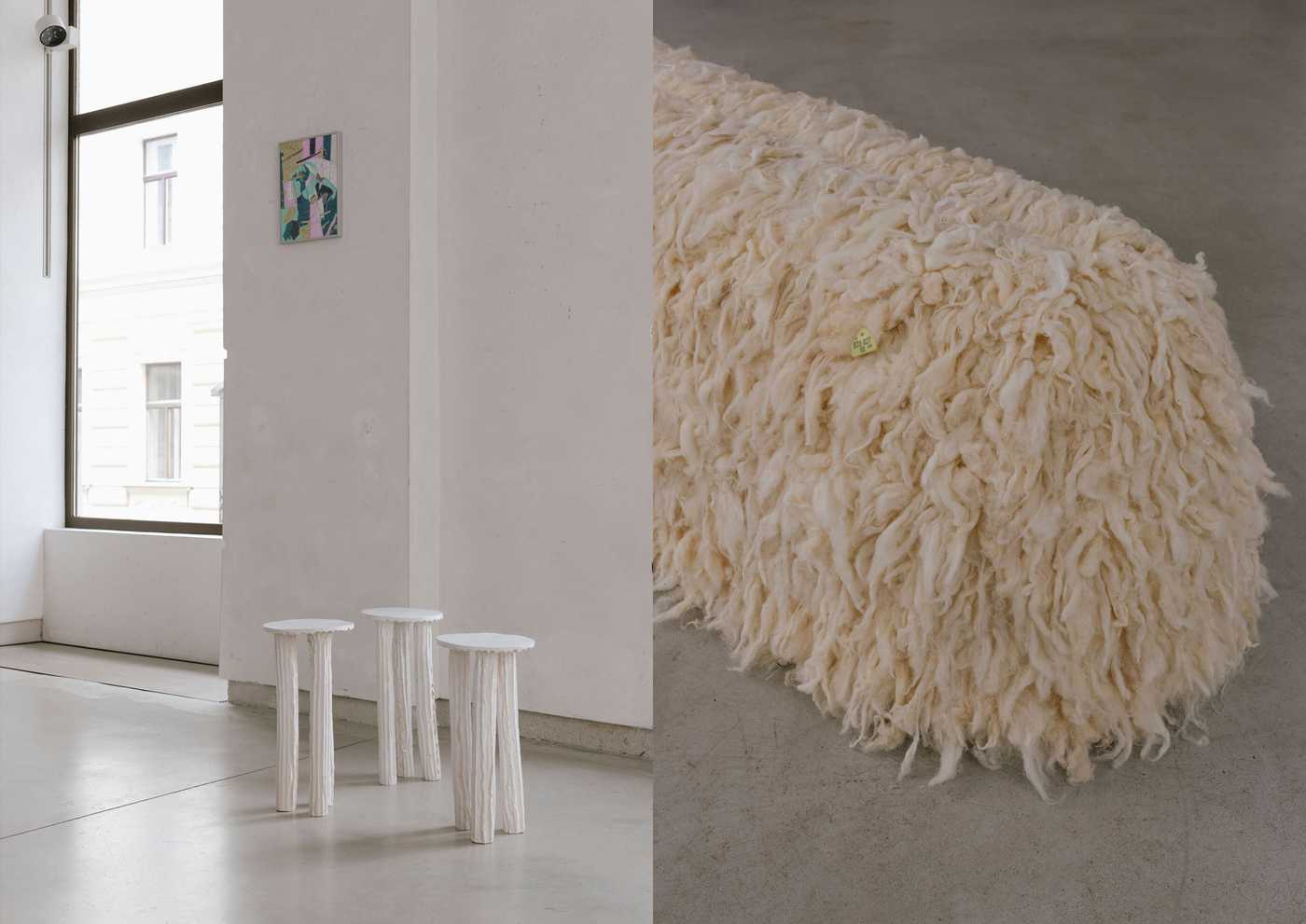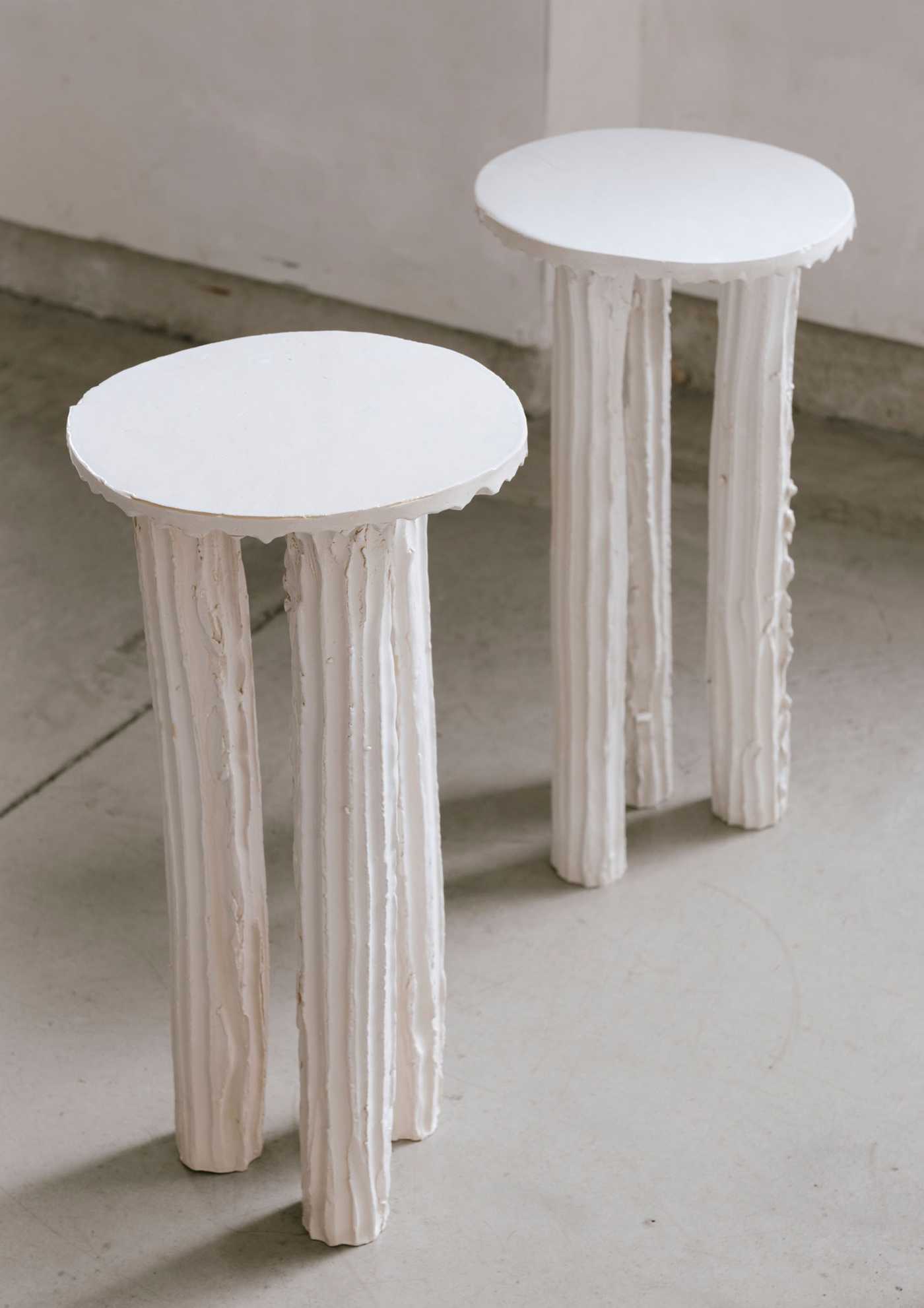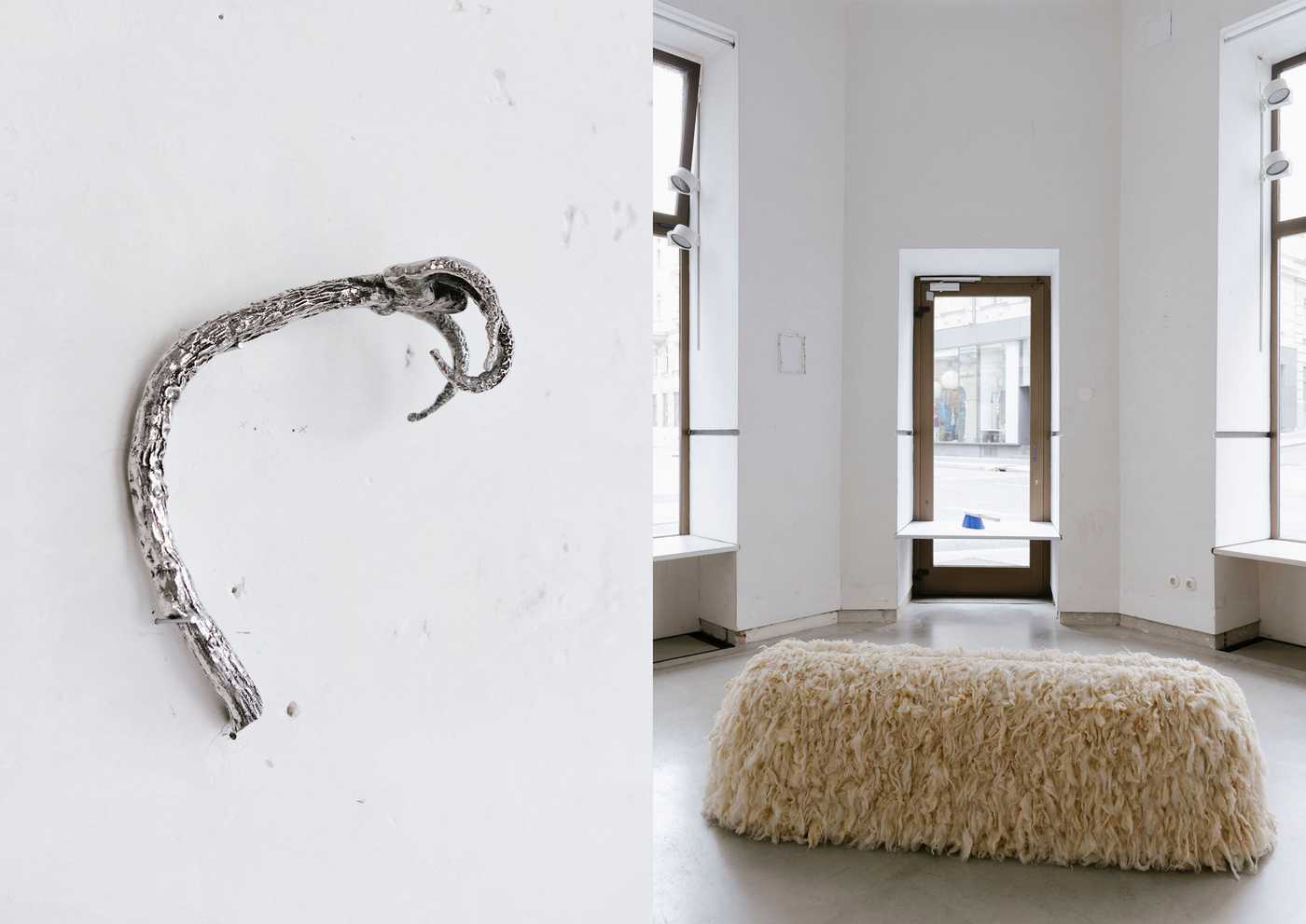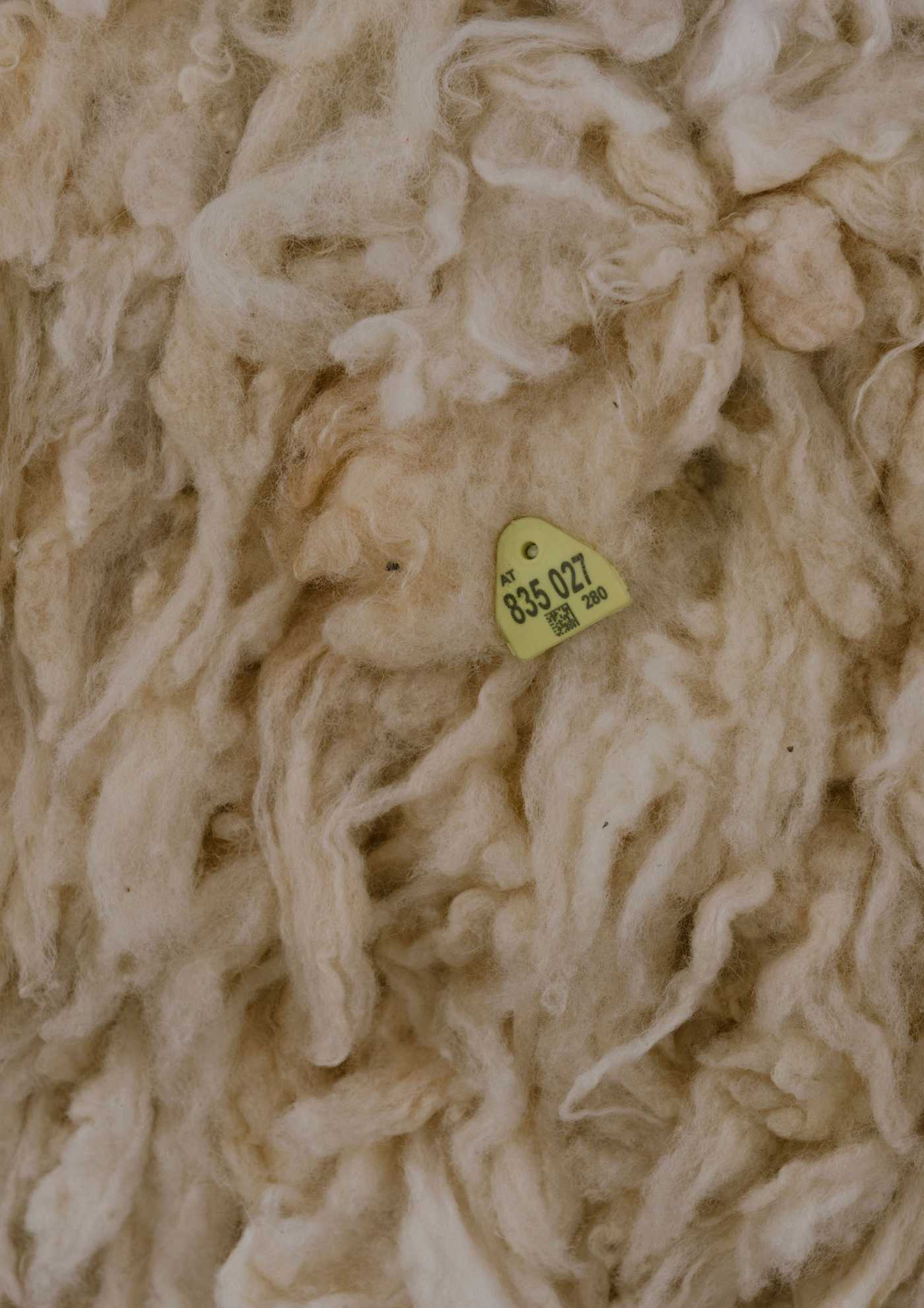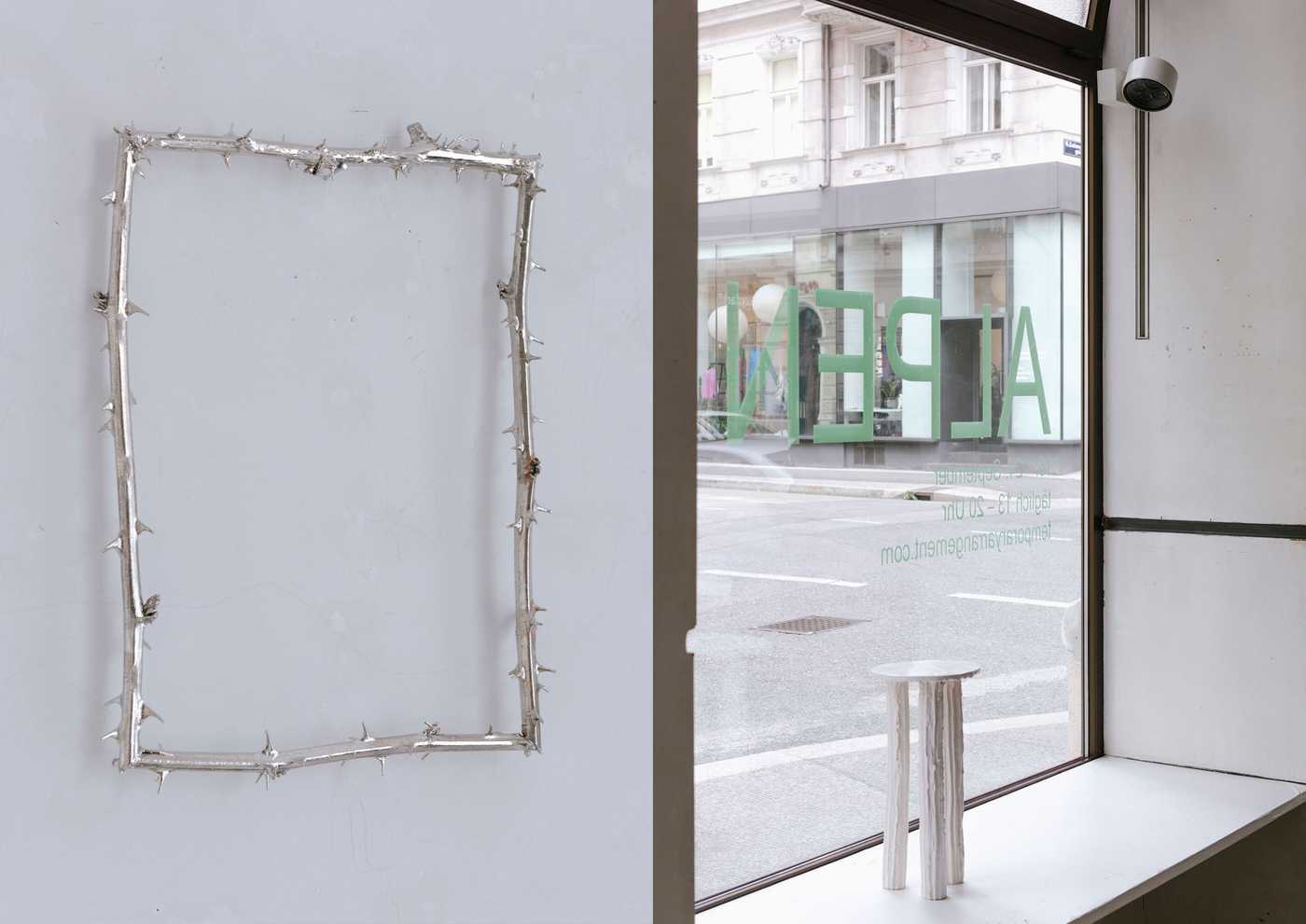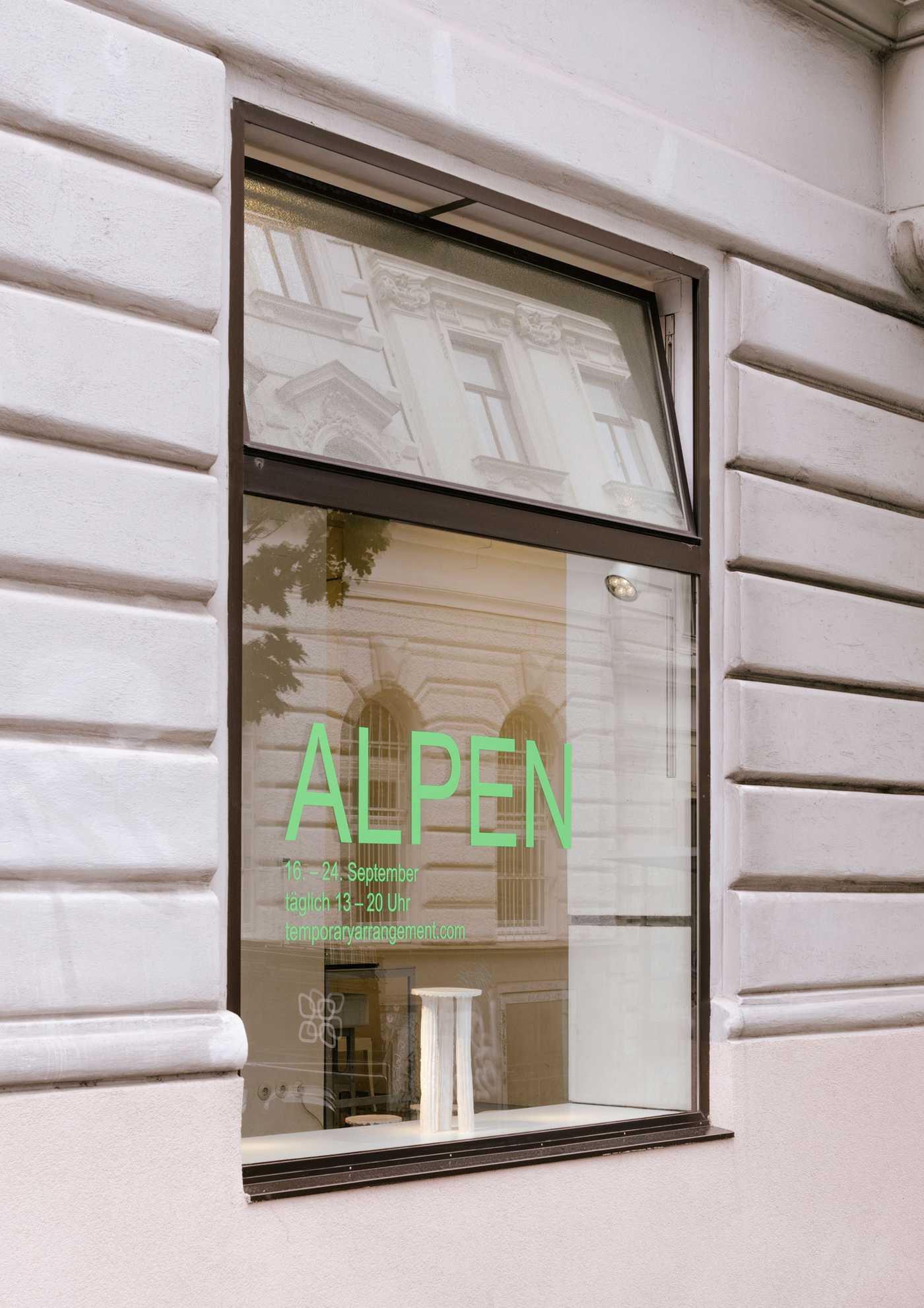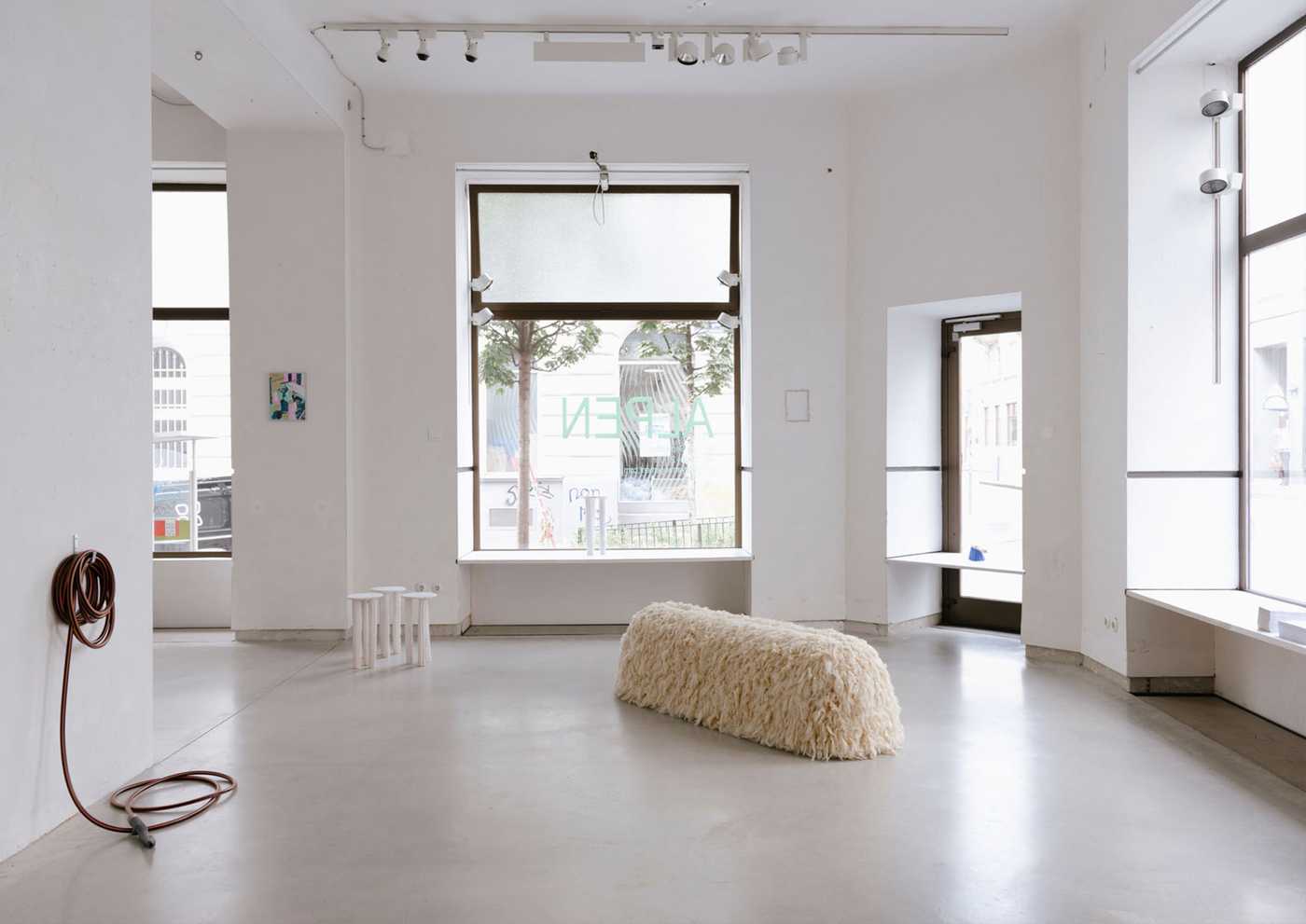
INFO
ALPEN by the collective temporary.arrangement seeks to illustrate – fragmentarily – and reinterpret the Alps. The works on show range from kitsch to handcraft and combine the natural and the artificial, while making references to thousand-year-old myths, legends, and sagas. Recurring symbols and narratives form the backbone to the exhibition and the notion of homeland is addressed from a range of perspectives. In a world, in which religion and popular beliefs appear to play an ever diminishing role, ALPEN builds bridges with the here and now. As subjects; melting glaciers, spiritual sites, and the rediscovery of our relationship with nature couldn’t be more contemporary. The exhibition is a cooperative transalpine project by Lino Gasparitsch (Germany), Bettina Willnauer (Austria), and Anna Zimmermann (Switzerland).
Schafbank
Sheep have played a vital role in the historical development of settlements in the Alpine region. They have been kept as farm animals above the tree line in the higher Alpine regions from as far back as the prehistoric ages. So, it is unsurprising that an air of mystery and myth has enveloped these animals over time. They are robust and undemanding, and adaptable to a whole range of climatic conditions and a meagre diet. Engaging with these themes, the object consists of a foam core covered in untreated wool. It deliberately takes up a central position in the exhibition, serving as an anchor from which to observe other pieces in the collection, while comfortably seated.
Milchstuhl
This object references the milking stool in the children’s cartoon “Heidi” and reinterprets it. The shiny white surface of the object mimics that of milk. The proportions of the stool are inspired by the classical form of functional milking stools and can feel unfamiliar at first. In the series “Heidi”, the drinking of milk has an important narrative function, as milk is considered highly nutritional and very healthy by the Alpine population.
Klaue
Found object, aluminum cast.
Dornenrahmen
Blackberry thorn tendrils, nickel pleated.
Credits
The project was funded by the „Bundesministerium für Kunst, Kultur, öffentlichen Dienst und Sport Österreich“, Photography: Lea Sonderegger
